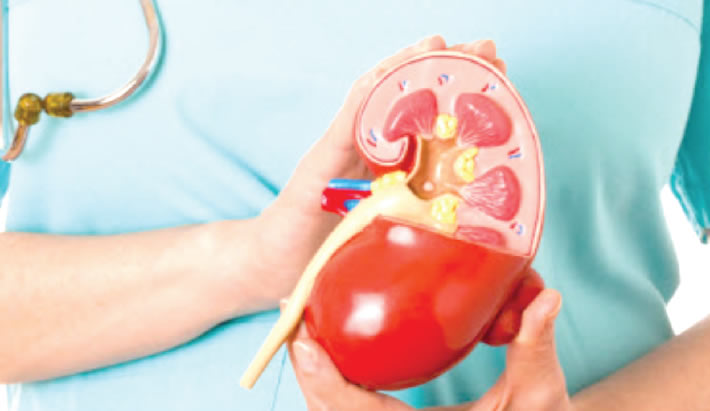How to Choose the Best Kidney Transplant Hospital for Your Needs

When dealing with kidney failure and the need for a kidney transplant, choosing the right hospital can greatly impact the success and experience of your treatment. India has emerged as a hub for advanced medical facilities as some hospitals offer advanced kidney transplant programs led by experts in nephrology and urology.
Here’s a guide to help you make an informed decision when choosing the best kidney transplant hospital to suit your needs.
1. Consider Hospital Expertise and Success Rate
A hospital’s expertise in kidney transplants is a crucial factor. Look for hospitals with a high success rate and extensive experience in handling simple and complex cases. Top hospitals often have strong renal transplant programs supported by a team of skilled nephrologists, urologists, and kidney transplant surgeons who ensure a comprehensive, coordinated approach. Facilities with a robust record of successful cadaver renal transplants are generally reliable choices for patients.
2. Multidisciplinary Approach and Personalised Care
A kidney transplant requires the collective efforts of specialists across multiple disciplines, including nephrology, urology, and critical care. Hospitals that emphasise a multidisciplinary approach provide more thorough and personalised care. Medical teams that collaborate effectively can better address each patient’s unique needs, ensuring comprehensive care from pre-transplant preparation through post-operative support.
3. Advanced Facilities and Technology
Modern technology and facilities are essential for effective transplant care. Hospitals with advanced infrastructure, such as lamellar airflow systems in ICUs to reduce infection risk, the latest diagnostic tools, and minimally invasive surgical options like laparoscopic donor nephrectomy, prioritise patient safety and better outcomes. This approach can help enhance recovery and minimise pain for both donors and recipients.
4. Variety of Kidney Transplant Services
Different patients require different transplant options. The best kidney transplant hospitals in India are the ones that offer a variety of transplant types—including ABO-incompatible transplants, pre-emptive transplants, and procedures for highly sensitised or HIV-positive patients—are better equipped to meet diverse needs. This adaptability is vital for patients with unique medical requirements or those requiring re-transplants.
5. Experienced and Specialised Medical Team
The skill and experience of a hospital’s transplant team are vital for effective treatment. Experienced nephrologists and transplant surgeons bring years of expertise to the field, offering patient-centric care and customised treatment plans. Look for hospitals with reputable, specialised medical professionals known for managing even the most challenging cases effectively.
6. Post-Transplant Care and Support
Long-term follow-up and monitoring are essential after a kidney transplant. Hospitals with structured post-transplant programs that include regular check-ups, medication management, and counselling offer patients much-needed support. Such programs are crucial in preventing complications, maintaining kidney function, and enhancing overall quality of life.
7. Kidney Donor Safety
The safety of kidney donors is important. The best kidney transplant hospitals in India prioritise minimally invasive donor procedures and demonstrate a commitment to donor well-being. Minimally invasive techniques, such as laparoscopic donor nephrectomy, reduce pain and expedite recovery, showing a hospital’s focus on maintaining the best standards for donor care throughout the donation process.
8. Get Recommendations and Consider Patient Reviews
Patient reviews and recommendations provide valuable insights into a hospital’s quality of care. Online testimonials, as well as consultations with kidney patients and healthcare providers, can offer honest perspectives on what to expect. These sources of feedback can help you make an informed decision on hospital care and service standards.
9. Insurance and Financial Assistance Programs
Kidney transplants can be expensive, so it’s essential to consider hospitals that accept your health insurance or offer financial assistance programs. Some hospitals work with insurance providers to ensure comprehensive coverage and offer flexible payment plans, which can significantly reduce out-of-pocket expenses for patients. Understanding your financial options in advance can ease the financial burden and allow you to focus on recovery.
10. Patient Education and Support Resources
A successful transplant journey also depends on how well a patient is prepared for each stage of the process. Hospitals that provide educational resources, counselling, and support groups for patients and their families can make the journey smoother. These resources help patients understand lifestyle changes, dietary needs, and other important aspects of post-transplant life, empowering them with knowledge for a healthier future.
In India, leading healthcare providers like BLK Max Super Speciality Hospital are well-known for their world-class facilities, advanced technology, and highly experienced medical teams. They follow a multidisciplinary approach that ensures comprehensive, compassionate, and effective kidney transplant care.
Know more about : 7 Things To Avoid For a Healthy Kidney
Conclusion
Choosing the best kidney transplant hospital is vital in managing kidney failure. Leading hospitals with expertise, advanced facilities, comprehensive patient care, and supportive resources can significantly impact your transplant experience. By carefully evaluating these factors, you can finalise a hospital that meets your needs, increasing your chances of a successful transplant and a better quality of life.







